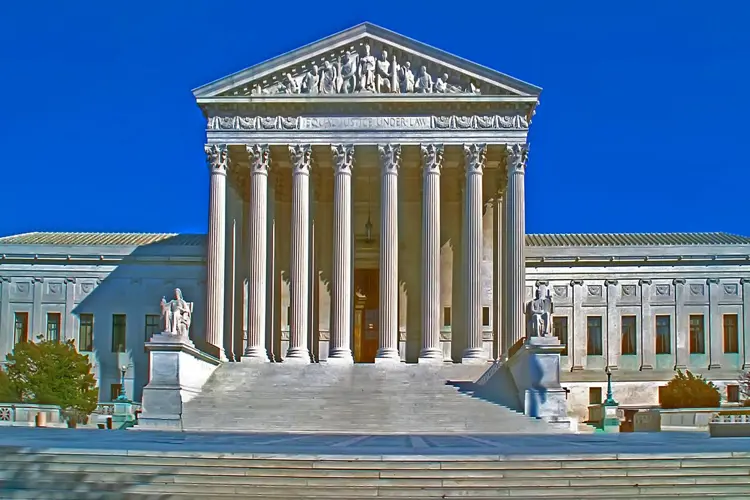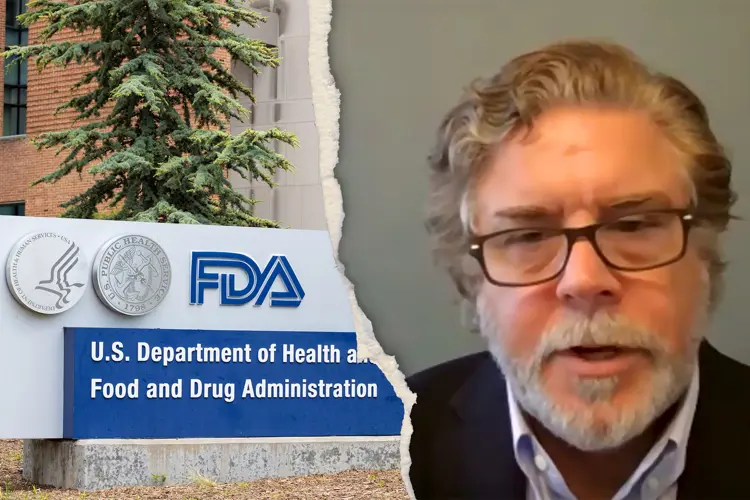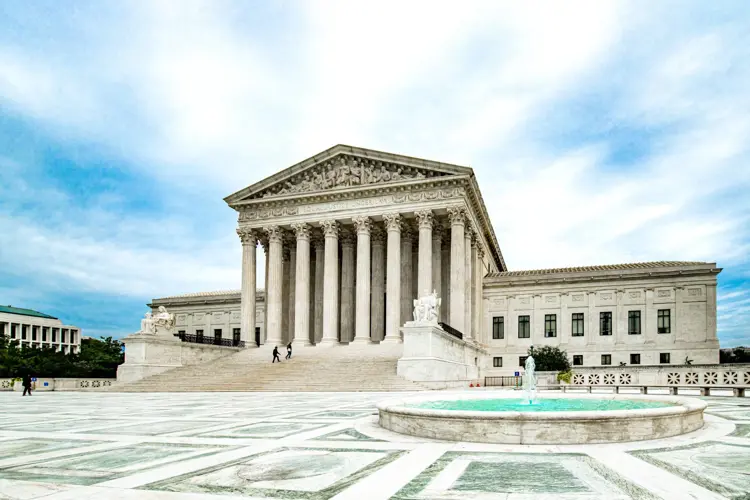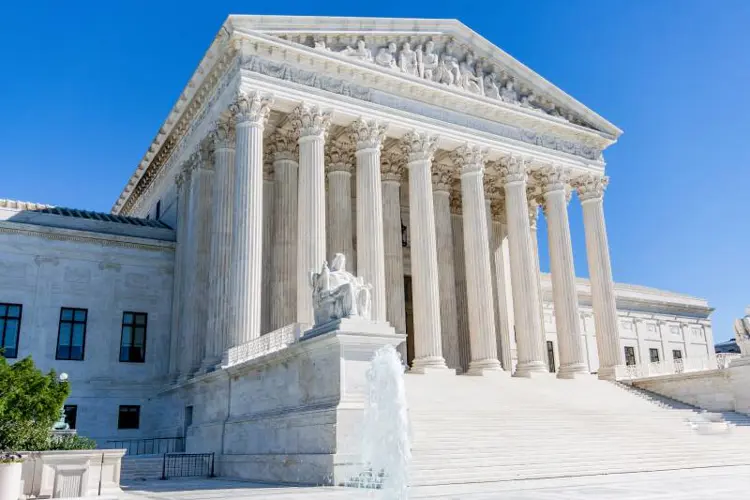Yesterday, the Supreme Court vacated the Fifth Circuit Court ruling in favor of Triton Distribution and Vapetasia, sending the case back to the Fifth Circuit. The court's 9-0 ruling is a win for the FDA, which appealed the Fifth Circuit decision to the high court, but it could be a temporary victory, because the court ruled narrowly and left many big questions unanswered.
The court remanded the case to the Fifth Circuit, which gives the vaping companies another bite at the apple. Triton owner Todd Wages wrote on X (Twitter) that he “Can’t wait to continue the fight.”
The case, FDA v. Wages and White Lion Investments, L.L.C., was argued before the court on Dec. 2, 2024 by lawyers representing the FDA and the vaping manufacturers. Briefs from both sides, as well as amicus curiae briefs from interested outside parties, are available for review on the court’s docket page.
FDA has broad leeway to determine required evidence in PMTAs
The court found that the FDA’s actions when issuing marketing denial orders (MDOs) to the two vaping companies were not arbitrary and capricious. The justices disagreed with the Fifth Circuit, rejecting the idea that the FDA had pulled a regulatory “surprise switcheroo.”
Rather, the Supreme Court found that the agency’s decisions “were sufficiently consistent with its predecisional guidance—as to scientific evidence, comparative efficacy, and device type—and thus did not run afoul of the change-in-position doctrine.”
The 2009 Tobacco Control Act—the law that guides the FDA Center for Tobacco Products (CTP)—”left the FDA broad discretion to decide what sort of scientific evidence an applicant was required to submit,” wrote Justice Samuel A. Alito for the unanimous court.
Whether the FDA acted arbitrarily and capriciously in denying the companies’ premarket tobacco applications (PMTAs)—violating the Administrative Procedure Act (APA) and Tobacco Control Act—was the question the Supreme Court agreed to answer when accepting the case.
The decision means that, for now anyway, companies submitting PMTAs will have to provide evidence that meets the FDA’s stringent standards. (Of course, the FDA under the Trump administration could change the standards.)
Big issues were not addressed in the decision
The court crafted its decision narrowly to steer clear of other issues raised in the case. That may be a blessing for the vaping industry, because at least one legal expert thinks the Fifth Circuit overreached in its ruling.
“This is yet another case in which the [Supreme] Court is critical of the Fifth Circuit's cavalier approach to administrative law doctrine,” wrote Case Western Reserve University School of Law professor Jonathan Adler in an X thread.
“There are lots of problems with how the FDA is handling vaping product applications,” added Adler, who has written extensively on vaping and the law, “but [the Fifth Circuit] opinion overreached, as it has in other cases.”
“Those seeking to defend vaping products against the FDA's arbitrary review process need to up their game as well,” wrote Adler. “This case was poorly briefed and did not have the sort of amicus support necessary for the underlying claims. The remand is an opportunity to fix this.”
According to an explanatory X thread by vaping industry advocate and attorney Gregory Conley (formerly with American Vapor Manufacturers), the court “didn’t rule on the merits of FDA’s process and left major constitutional and APA issues untouched.”
It is those issues, and the FDA’s failure to assess the companies’ marketing plans, that the vaping industry was especially eager for the court to address.
Did the FDA impose a flavor standard without proper rulemaking?
The FDA has never authorized an e-liquid-based vaping product in a flavor other than tobacco or menthol. But the agency has also never advanced a rule prohibiting flavors, as generally required by the APA. (The FDA began the process once, but abandoned it.)
As we explained in a November 2024 article, banning flavors would require the agency to follow standard APA rulemaking procedures: issue a proposed rule, accept public comments, review the comments, and revise the rule before publishing and implementing it.
Instead, the FDA devised a method to accomplish the same end without following the APA. The agency—faced with PMTAs for millions of flavored vape products—created an unpublished standard and a system that allowed FDA employees to issue cookie-cutter marketing denials based on that standard. It claims to have abandoned that process before issuing MDOs to Triton and Vapetasia, but the results were the same—for millions of applications.
Without a standard that has been approved through notice-and-comment rulemaking, the Tobacco Control Act requires individual consideration for each application, and does not allow the agency to sweep an entire category of products off the market. Yet, that is what happened.
The court declined to address the question of whether the FDA was required to assess PMTAs using standards developed in notice-and-comment rulemaking mandated by the APA.
“We did not grant certiorari on that question,” wrote Justice Alito, “and without adequate briefing, it would not be prudent to decide it here.”
That question remains unaddressed.
Was the FDA required to assess marketing plans before rejecting PMTAs?
The FDA did not ask the Supreme Court to address the Fifth Circuit’s finding that the agency should have considered the manufacturers’ marketing plans before issuing MDOs. Rather, the FDA suggested the question of whether its failure to assess the plans was “harmless error” (meaning that the marketing plans wouldn’t have affected the agency’s decision to deny the PMTAs) or “fatal error” should be remanded to the Fifth Circuit to be addressed again with guidance from the Supreme Court. And the justices did just that.
“The Fifth Circuit,” wrote Justice Alito, “relied on an overly broad reading of Calcutt v. FDIC to reject the FDA’s claim of harmless error ....The FDA has not asked the Court to decide the harmless error question at this juncture, and the Court vacates and remands so the Fifth Circuit can decide the question afresh without relying on its overly expansive reading of Calcutt.”
Other unaddressed questions could play a part when the case is reheard
In a footnote, the justices noted that “numerous alternative grounds” for affirming the Fifth Circuit decision were suggested in amicus curiae briefs:
- The Tobacco Control Act unconstitutionally delegated lawmaking power to the FDA
- The relevant provisions of the Tobacco Control Act are unconstitutionally vague
- The vaping industry respondents were denied due process
- The FDA violated the Supreme Court’s “major questions” doctrine
“Although these issues have a bearing on what appears to have been the Court of Appeals’ animating concern—i.e., that the FDA did not give respondents and other applicants fair and accurate notice regarding what it would insist that an application contain—these arguments fall outside the scope of the question presented, were not passed on below, and were not pressed in respondents’ brief,” wrote the court. “We therefore decline to reach them. And our opinion should not be read to suggest any view on their merits.”
Vaping opponents see the decision as a ruling on flavors
The ruling was cheered by tobacco control groups that have lobbied for bans on vaping products. They believe the court ruled in favor of flavor restrictions.
“Flavors lure kids, which is why Congress gave F.D.A. the authority to make science-based decisions on what is appropriate for our nation’s health,” American Lung Association assistant vice president Erika Sward told the New York Times.
The ruling “affirms that the FDA’s marketing denials for flavored e-cigarettes have been legally and scientifically sound and should encourage FDA to stay the course,” Campaign for Tobacco-Free Kids president Yolanda C. Richardson said in a press release.
What happens next?
The Triton case will go back to the Fifth Circuit to be relitigated, this time minus the argument that the FDA pulled a regulatory switcheroo, and with new emphasis on the questions around FDA review of marketing plans, and possibly some previously unaddressed issues.
Or the FDA could back down and decline to defend the appeal, agreeing to conduct new PMTA reviews for Triton and Vapetasia, and other companies with pending MDO appeals.
The ideal result would be a complete reorientation of the CTP after the Trump administration’s recentpurge of the tobacco office. New FDA Commissioner Martin Makary’s views on vaping regulation are unknown, but President Trump himself promised to “save vaping,” so reform at the CTP shouldn’t be a bridge too far. Much will depend on who is chosen to lead the CTP, and how much leeway the new director is given.
For the vaping industry, that is the goal. The agency needs to create simple, written standards for PMTAs, mandate short review times, and end the shadow ban of flavored and open-system products.
Much more needs to be done, of course, but those things would begin a transformation of vaping product regulation. FDA authorizations for e-liquids, refillable vape devices, and high-quality disposable vapes would nearly eliminate the harm caused by state-level PMTA registry laws, and would allow vape shops to survive.
Once flavored products are authorized, the resources previously used to enforce a prohibition can be dedicated to enforcing age laws and safety standards, as they should have been all along. A legal, regulated vaping industry will make compromises on things like packaging and naming standards, as long as they know that their products will be allowed on the market.
There can be a future in which high-quality vaping products are sold—in flavors consumers want—with FDA cooperation, and without creating a Wild West or kowtowing to the tobacco industry’s desire to rule over the world of regulated vapes. That's the hope anyway.
The Freemax REXA PRO and REXA SMART are highly advanced pod vapes, offering seemingly endless features, beautiful touchscreens, and new DUOMAX pods.
The OXVA XLIM Pro 2 DNA is powered by a custom-made Evolv DNA chipset, offering a Replay function and dry hit protection. Read our review to find out more.
The SKE Bar is a 2 mL replaceable pod vape with a 500 mAh battery, a 1.2-ohm mesh coil, and 35 flavors to choose from in 2% nicotine.
Because of declining cigarette sales, state governments in the U.S. and countries around the world are looking to vapor products as a new source of tax revenue.
The legal age to buy e-cigarettes and other vaping products varies around the world. The United States recently changed the legal minimum sales age to 21.
A list of vaping product flavor bans and online sales bans in the United States, and sales and possession bans in other countries.
















